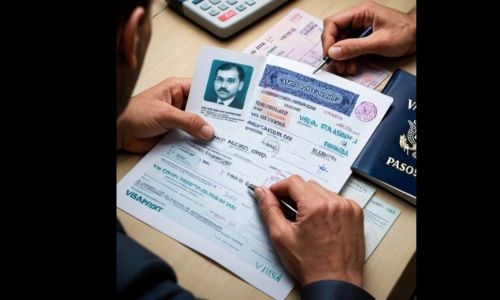"My visa's in my passport, please!"
By P. Unnikrishnan
Bahrain is a beacon of digital progress, setting an example for nations striving to innovate across various sectors.
Amid the COVID-19 pandemic, its commitment to digital solutions has propelled it further, nudging even the most resistant towards remote work and online transactions.
Government agencies like the Bahrain General Organisation for Social Insurance, the Labour Market Regulatory Authority, the Electricity and Water Authority, the Ministry of Finance and National Economy, and the Nationality, Passports and Residence Affairs have seamlessly transitioned to digital platforms, offering efficient services sans the need for physical presence.
The introduction of the e-gate facility at airports has revolutionised travel. Residents of Bahrain can now bypass long queues, streamlining their journey through electronic gates.
While the decision to cease stamping residence permits in passports signals the Nationality, Passports and Residence Affairs’ commitment to paperless operations, transitioning to digital visas poses challenges, particularly for returning travellers.
Expatriates encounter hurdles worldwide, from airline personnel to immigration officers, who often demand physical copies of visas.
This insistence on traditional documentation causes delays at immigration checkpoints despite travellers maintaining digital copies on their devices.
Many airports still require printed versions of visas, a regressive practice in the digital age.
The plight is particularly acute for blue-collar workers, who frequently struggle to access their visas online.
Introducing a nominal fee for compact visa stamps directly in passports could alleviate the burden for many travellers, incentivising them to opt for traditional visa documentation over digital alternatives.
Devoting an entire passport page to a visa stamp appears archaic — a relic of tradition that could be made more practical.
A more streamlined approach involving smaller stamps bearing relevant ministry or country logos alongside visa details would save space and simplify procedures.
The Emigration Department could consider levying an additional charge for visa stamping upon demand, potentially generating supplementary revenue.
As Bahrain marches steadfastly towards a digital future, ensuring its transition remains inclusive and pragmatic is essential.
It must cater to the diverse needs of travellers while embracing the efficiencies of modern technology
The author is the Chairman and Managing Editor of The Daily Tribune
Related Posts


